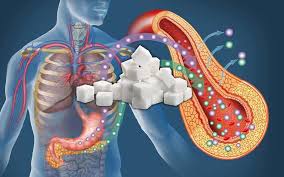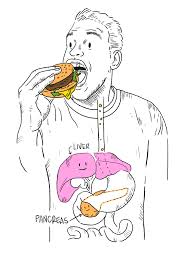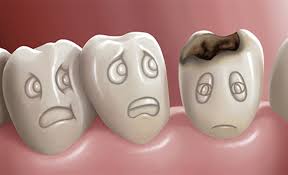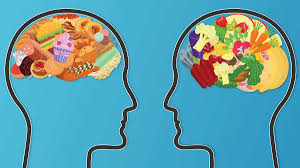
Sugar Consumption Effects: Impact on Health and Wellness
In the modern era, sugar consumption has become an integral aspect of our daily lives, adding a tantalizing sweetness to our diets. However, delving into the not-so-sweet truth about sugar unveils its profound effects on our health. From influencing blood sugar levels to contributing to obesity and metabolic disorders, understanding the impact of sugar consumption is crucial for fostering a healthier lifestyle.

Sugar, with its tantalizing taste and satisfying sweetness, has become an integral part of our modern diet. From our morning cup of coffee to our indulgent desserts, sugar seems to find its way into nearly everything we consume. However, what many of us fail to recognize are the profound effects that excessive sugar consumption can have on our bodies. Join us as we navigate through the bittersweet realities of sugar consumption, from the initial rush to the inevitable crash, shedding light on the importance of awareness and moderation in fostering a healthier lifestyle.
The Sugar Rush:

When we consume sugar, it quickly enters our bloodstream and causes a rapid spike in blood sugar levels. This sudden surge triggers the release of insulin, a hormone produced by the pancreas to regulate blood sugar. Insulin helps cells absorb sugar from the bloodstream to be used as energy or stored for later use. However, excessive sugar consumption over time can lead to insulin resistance, where the cells become less responsive to insulin’s actions, potentially leading to type 2 diabetes.
The Crash and Burn: The Aftermath of Overindulgence

While the initial sugar rush may feel like a joyous dance, it inevitably leads to a bitter aftermath—the dreaded sugar crash. As the effects of dopamine subside, our energy levels plummet, and we’re left feeling tired, sluggish, and sometimes irritable. This cycle of highs and lows can wreak havoc on our productivity and mood, making it difficult to maintain a steady level of focus throughout the day.
The Link Between Sugar Consumption and Obesity

Sugar is a hidden saboteur in the battle against obesity. It is calorie-dense but nutrient-poor, meaning it provides empty calories without offering substantial nutritional value. Regularly indulging in sugary treats can lead to weight gain and ultimately contribute to obesity. High sugar intake stimulates the release of dopamine, a neurotransmitter associated with pleasure and reward. This can create addictive tendencies, causing us to crave more sugar and leading to overeating. Moreover, excess sugar consumption can disrupt the balance of hunger-regulating hormones, leaving us feeling less satisfied and more prone to overeating. Regular consumption of sugary beverages and snacks can lead to an increase in calorie intake without providing essential nutrients.
Beyond the Scale: The Impact on Metabolic Health

Sugar isn’t just about packing on the pounds; it also plays a significant role in the development of metabolic disorders. Studies have linked excessive sugar consumption to insulin resistance, a condition in which cells struggle to absorb glucose effectively, leading to high blood sugar levels. This condition can progress to type 2 diabetes, a serious and chronic health concern that affects millions worldwide.
The Aging Game: Sugar Consumption and Premature Aging

Another less-discussed effect of sugar is its impact on the skin. A process called glycation occurs when sugar molecules attach themselves to proteins, including collagen and elastin, which are essential for maintaining skin elasticity and youthfulness. This process leads to the formation of advanced glycation end products (AGEs), which can contribute to wrinkles, sagging skin, and premature aging. Sugar’s pro-inflammatory effects can also exacerbate skin conditions such as acne and rosacea. If you’re hoping to maintain youthful skin and overall vitality, reducing your sugar intake might be a wise choice. So, the more sugar we consume, the faster we might find those crow’s feet appearing around our eyes.
Dental Health Woes:

When we think of the effects of sugar, we often overlook its impact on our pearly whites. The link between sugar and dental decay is no secret. Sugar acts as a food source for harmful bacteria in our mouths, leading to the formation of acids that erode tooth enamel. Over time, this can result in cavities, gum disease, and potential tooth loss. For the sake of your pearly whites, it is essential to be mindful of sugar consumption and maintain good oral hygiene practices. Bacteria naturally present in our mouths feed on sugar and produce acids as a byproduct. These acids attack tooth enamel, leading to cavities and tooth decay. Frequent consumption of sugary foods and beverages increases the likelihood of dental problems, such as gum disease and tooth loss. Maintaining good oral hygiene and minimizing sugar intake can help safeguard our dental health.
Inflammation and Chronic Diseases:

High sugar intake can contribute to chronic inflammation in the body. Inflammation is a natural immune response that helps fight off infections and heal injuries. However, when inflammation becomes chronic, it can lead to a range of health issues, including heart disease, certain cancers, and autoimmune conditions. Additionally, excessive sugar consumption is associated with elevated triglyceride levels, increased blood pressure, and reduced levels of good cholesterol (HDL), all of which raise the risk of cardiovascular disease.
Mental and Emotional Well-being:

Sugar not only impacts our physical health but can also influence our mental and emotional well-being. Studies have suggested that a high-sugar diet may increase the risk of depression and anxiety. The rapid fluctuations in blood sugar levels can affect neurotransmitter function and contribute to mood swings, irritability, and decreased cognitive performance. By reducing sugar consumption, we may enhance our overall mental and emotional resilience.
Strategies for Reducing Sugar Intake

Breaking free from sugar’s seductive grasp might seem challenging, but it’s entirely possible with the right approach. Here are some strategies to reduce sugar intake:
-
Read labels: Be vigilant about checking food labels for hidden sugars in processed foods and beverages.
-
Opt for natural sweetness: Satisfy your sweet tooth with natural alternatives like fruits or honey, which also provide beneficial nutrients.
-
Practice moderation: Enjoy your favorite sugary treats occasionally rather than making them a daily indulgence.
-
Cook at home: Preparing your meals allows you to control the amount of sugar used in your dishes.
-
Stay hydrated: Sometimes, what our bodies perceive as hunger is actually thirst. Staying hydrated can help curb unnecessary sugar cravings.
- Sugar substitutes offer a range of options for individuals looking to reduce their sugar consumption. Artificial sweeteners provide intense sweetness with minimal calories, while natural sugar substitutes offer plant-based alternatives. However, it’s essential to be mindful of individual preferences, potential side effects, and the need for further research on long-term effects. As always, consulting with a healthcare professional or registered dietitian can provide personalized guidance on incorporating sugar substitutes into a healthy lifestyle.

While sugar may bring temporary satisfaction and pleasure to our taste buds, its long-term effects on the body are far from sweet. From weight gain and dental problems to inflammation and chronic diseases, excessive sugar consumption can wreak havoc on our overall health. Awareness and moderation are key in managing our sugar intake and making healthier choices. By understanding the detrimental effects of sugar and taking proactive steps to reduce its consumption, we can pave the way for a healthier, more vibrant future.
Remember, it’s not about eliminating sugar entirely but finding a balanced approach that allows us to savor the sweetness of life while nurturing our bodies with the care they deserve.
Disclaimer: The information provided in this content is for general informational purposes only. It is not intended as medical or healthcare advice, diagnosis, or treatment. Always seek the advice of a qualified healthcare professional with any questions you may have regarding a medical condition or healthcare decisions.

